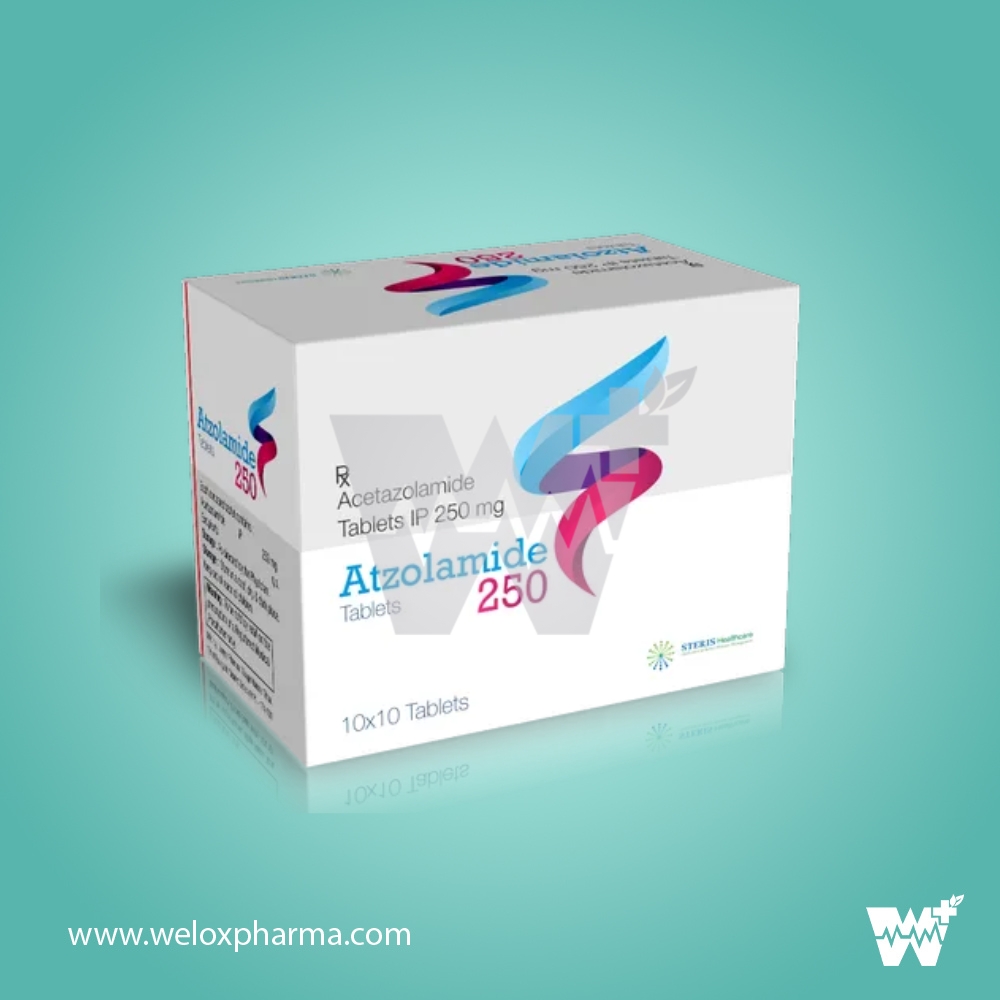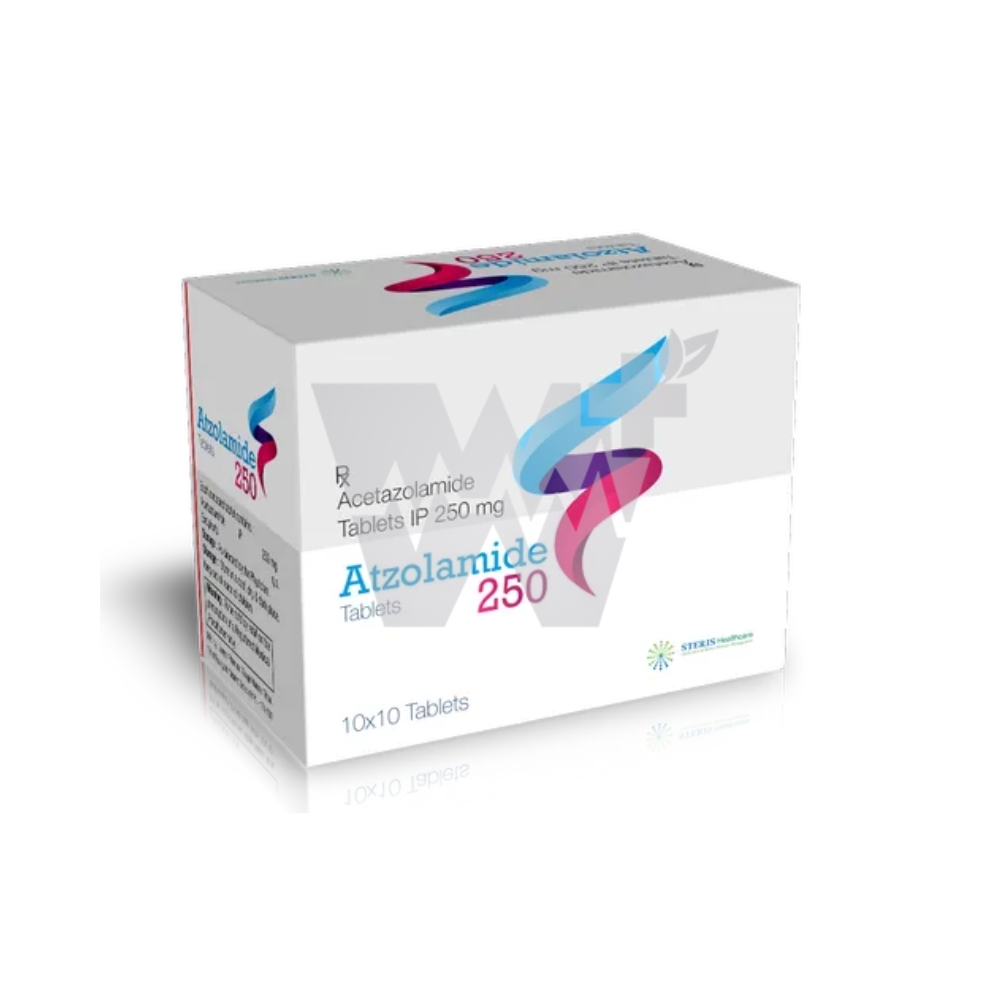



Introduction to Atzolamide 250 Acetazolamide Tablets IP 250 mg
Atzolamide 250 Acetazolamide Tablets IP 250 mg contain Acetazolamide, a carbonic anhydrase inhibitor that plays a crucial role in treating various medical conditions associated with fluid accumulation and pressure imbalances. Each tablet delivers a precise dose of 250 mg of Acetazolamide, making it suitable for addressing conditions that require effective management of fluid retention and pressure regulation.
Uses of Atzolamide 250 Acetazolamide Tablets IP 250 mg
Glaucoma: Used to lower intraocular pressure in patients with glaucoma, helping to prevent vision loss.
Altitude Sickness: Helps in alleviating symptoms of acute mountain sickness (AMS) by reducing the fluid buildup in the brain.
Edema: Manages edema (fluid retention) associated with conditions such as heart failure or kidney disorders.
Epilepsy: Used as an adjunctive treatment in specific types of epilepsy, particularly in patients who have not responded to other treatments.
Benefits of Atzolamide 250 Acetazolamide Tablets IP 250 mg
Effective Pressure Regulation: Helps lower intraocular pressure in glaucoma and manage increased intracranial pressure in conditions like altitude sickness.
Fluid Management: Assists in reducing edema and fluid retention, which can alleviate symptoms associated with heart or kidney disorders.
Symptom Relief: Provides relief from symptoms of altitude sickness, such as headache, nausea, and dizziness.
Adjunctive Therapy: Offers additional treatment options for epilepsy, particularly in cases resistant to standard therapies.
Convenient Dosage: Each tablet provides a precise 250 mg dose of Acetazolamide, ensuring effective and consistent treatment.
Mechanism of Action of Atzolamide 250 Acetazolamide Tablets IP 250 mg
Carbonic Anhydrase Inhibition: Acetazolamide inhibits the enzyme carbonic anhydrase, which is involved in the production of bicarbonate ions.
Reduced Bicarbonate Production: By inhibiting this enzyme, the production of bicarbonate is reduced, leading to a decrease in fluid buildup and pressure in the eyes and brain.
Increased Fluid Excretion: The inhibition of carbonic anhydrase also promotes the excretion of excess fluid from the body, helping to manage conditions related to fluid retention.
Alleviation of Symptoms: The reduction in fluid accumulation and pressure results in relief from symptoms associated with conditions like glaucoma and altitude sickness.